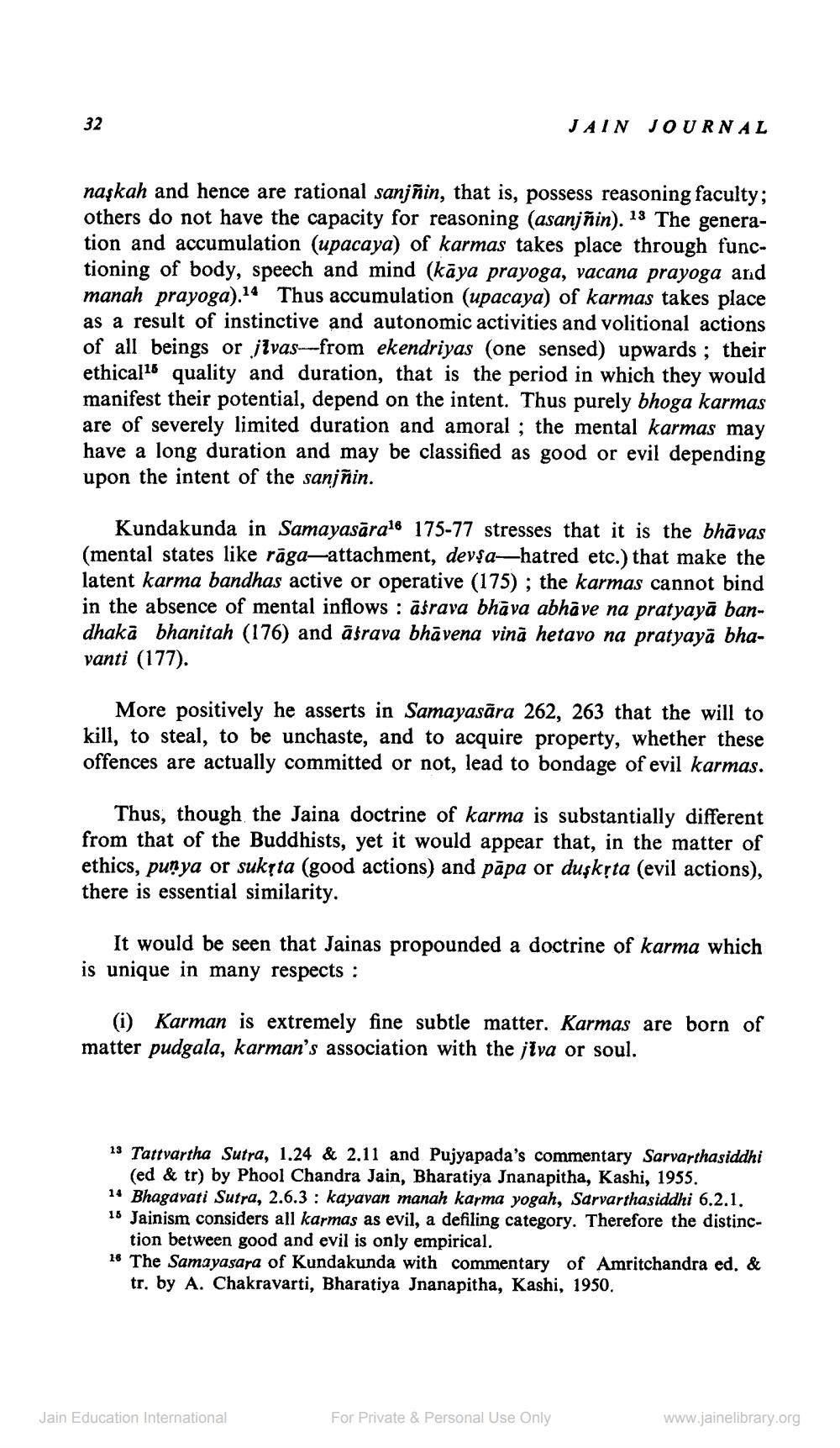________________
32
naşkah and hence are rational sanjñin, that is, possess reasoning faculty; others do not have the capacity for reasoning (asanjñin). 13 The generation and accumulation (upacaya) of karmas takes place through functioning of body, speech and mind (kāya prayoga, vacana prayoga and manah prayoga).14 Thus accumulation (upacaya) of karmas takes place as a result of instinctive and autonomic activities and volitional actions of all beings or jivas-from ekendriyas (one sensed) upwards; their ethical quality and duration, that is the period in which they would manifest their potential, depend on the intent. Thus purely bhoga karmas are of severely limited duration and amoral; the mental karmas may have a long duration and may be classified as good or evil depending upon the intent of the sanjñin.
JAIN JOURNAL
Kundakunda in Samayasarale 175-77 stresses that it is the bhāvas (mental states like rāga-attachment, devsa-hatred etc.) that make the latent karma bandhas active or operative (175); the karmas cannot bind in the absence of mental inflows: asrava bhava abhave na pratyayā bandhaka bhanitah (176) and atrava bhāvena vina hetavo na pratyaya bhavanti (177).
More positively he asserts in Samayasara 262, 263 that the will to kill, to steal, to be unchaste, and to acquire property, whether these offences are actually committed or not, lead to bondage of evil karmas.
Thus, though the Jaina doctrine of karma is substantially different from that of the Buddhists, yet it would appear that, in the matter of ethics, punya or sukṛta (good actions) and papa or duşkṛta (evil actions), there is essential similarity.
It would be seen that Jainas propounded a doctrine of karma which is unique in many respects :
(i) Karman is extremely fine subtle matter. Karmas are born of matter pudgala, karman's association with the jiva or soul.
13 Tattvartha Sutra, 1.24 & 2.11 and Pujyapada's commentary Sarvarthasiddhi (ed & tr) by Phool Chandra Jain, Bharatiya Jnanapitha, Kashi, 1955.
14 Bhagavati Sutra, 2.6.3: kayavan manah karma yogah, Sarvarthasiddhi 6.2.1. 15 Jainism considers all karmas as evil, a defiling category. Therefore the distinction between good and evil is only empirical.
18 The Samayasara of Kundakunda with commentary of Amritchandra ed. & tr. by A. Chakravarti, Bharatiya Jnanapitha, Kashi, 1950.
Jain Education International
For Private & Personal Use Only
www.jainelibrary.org




